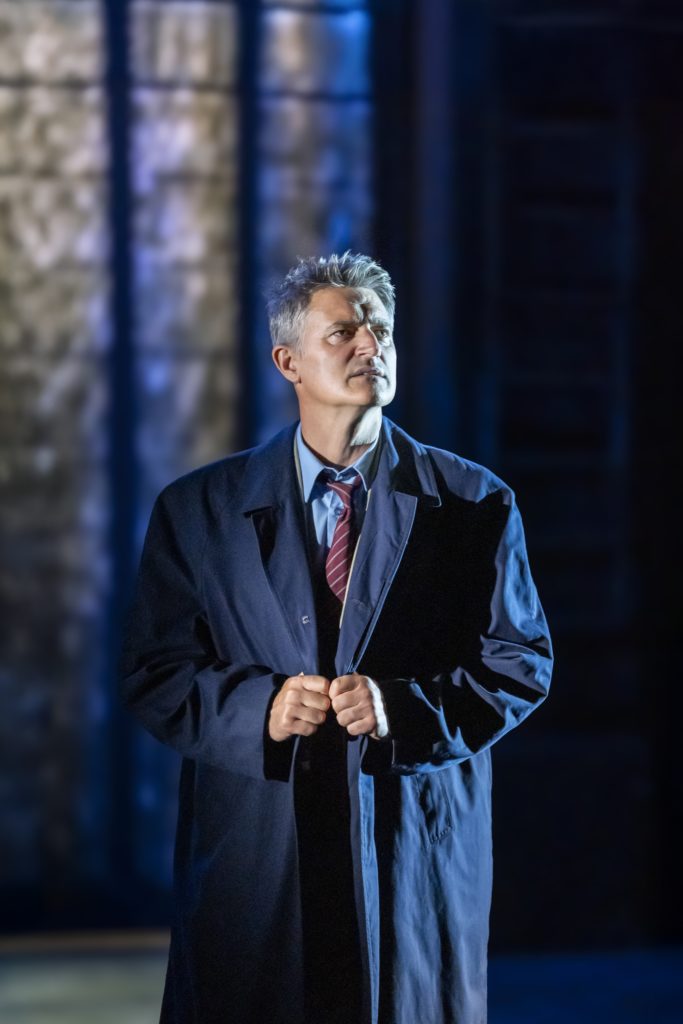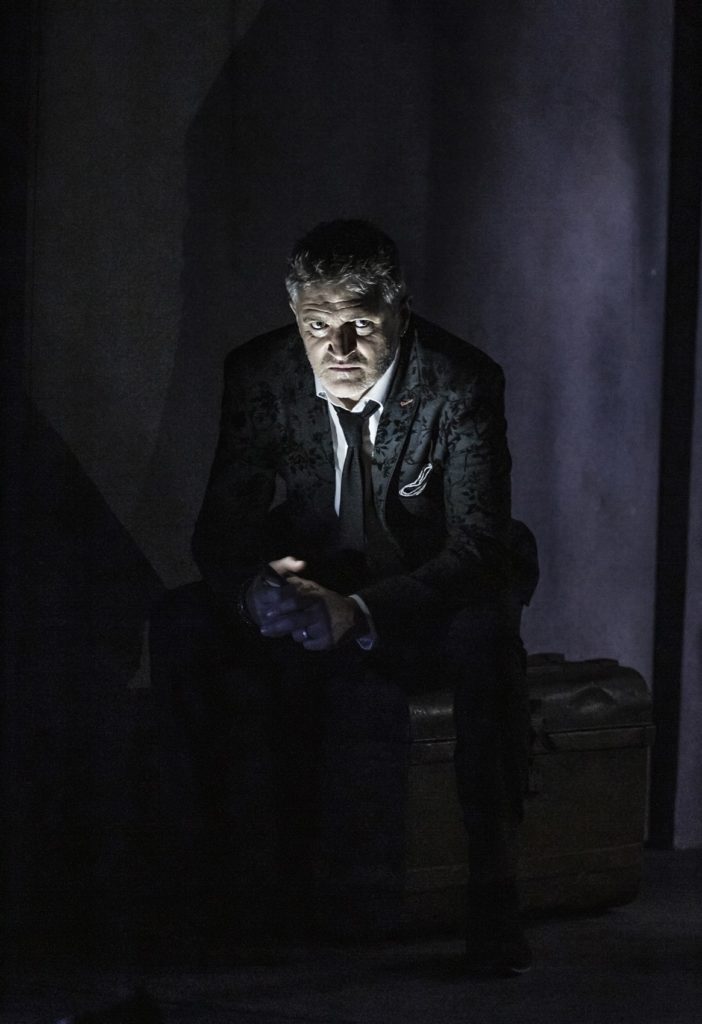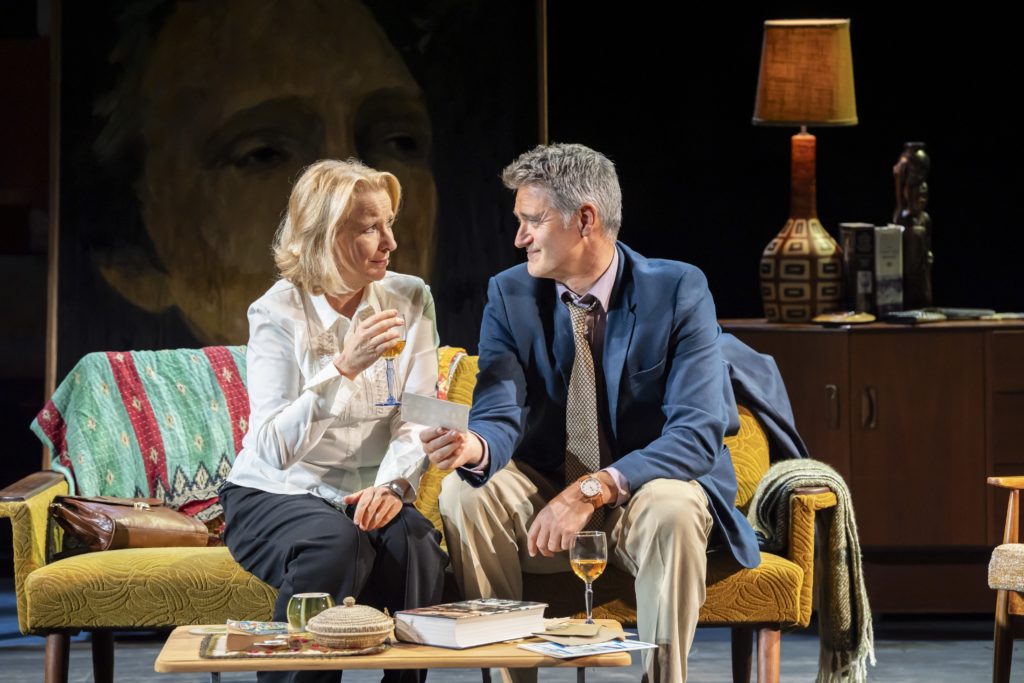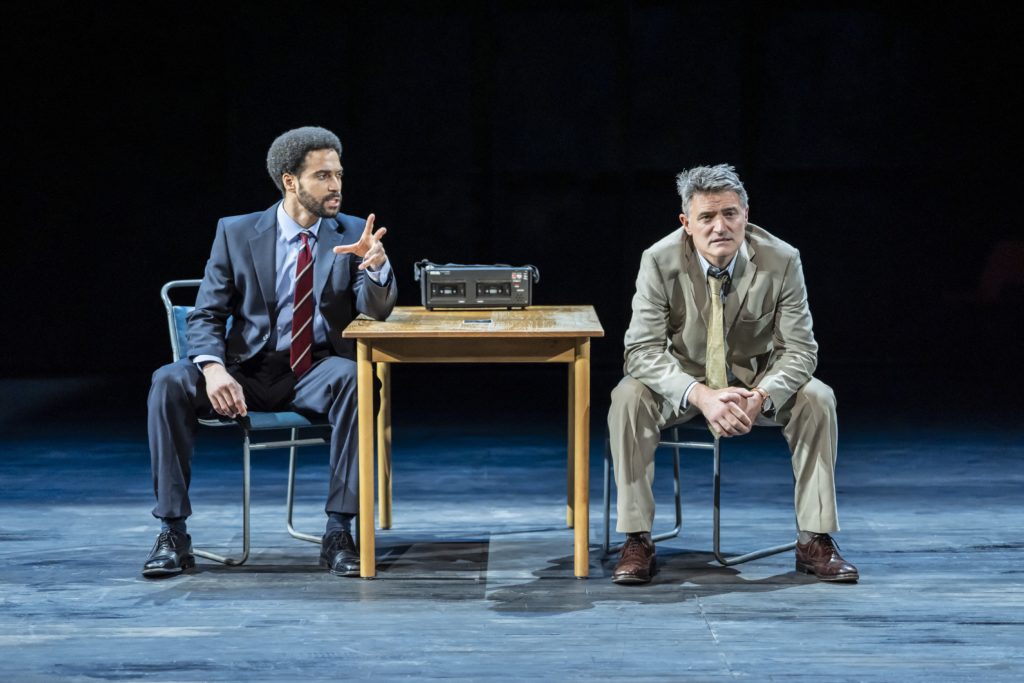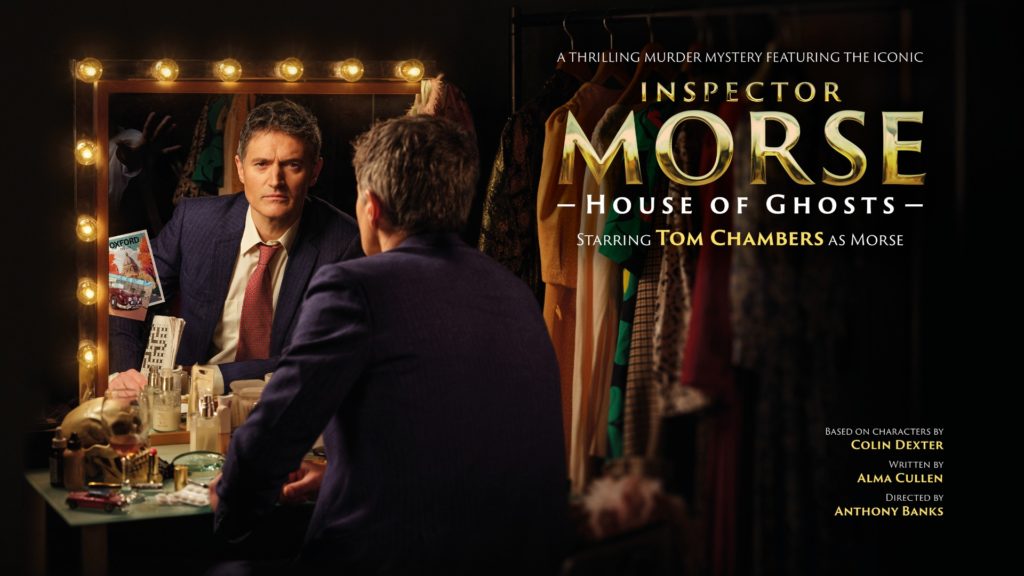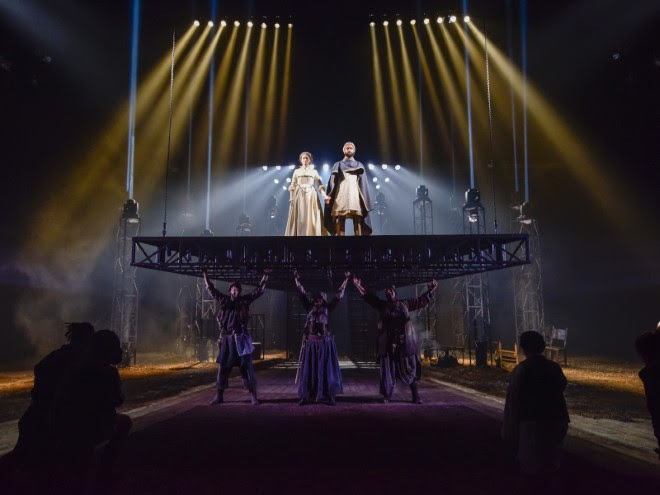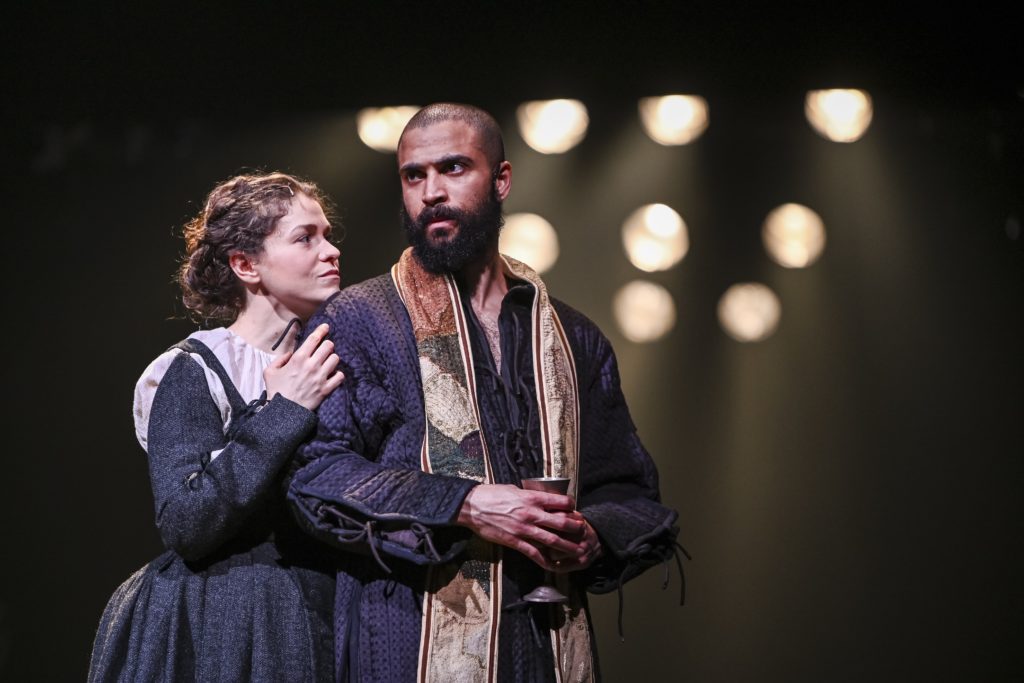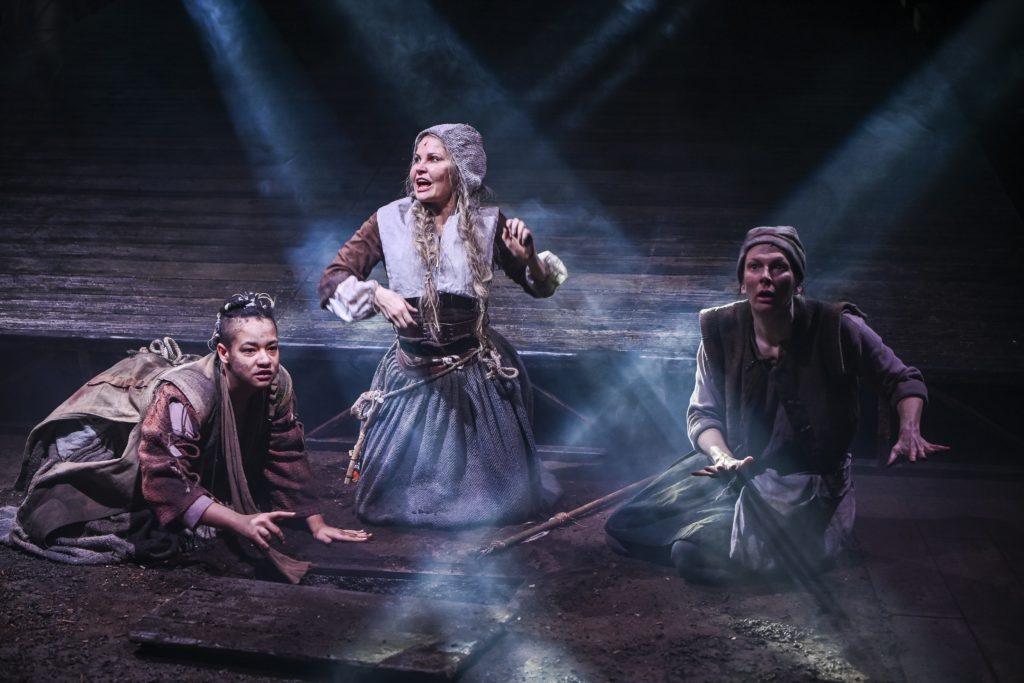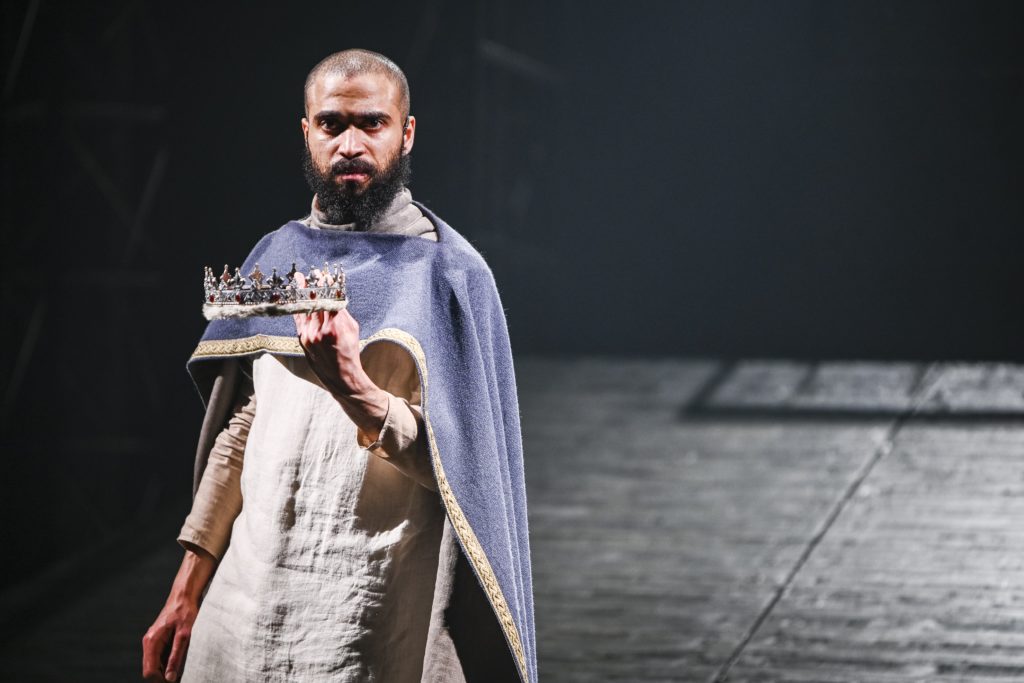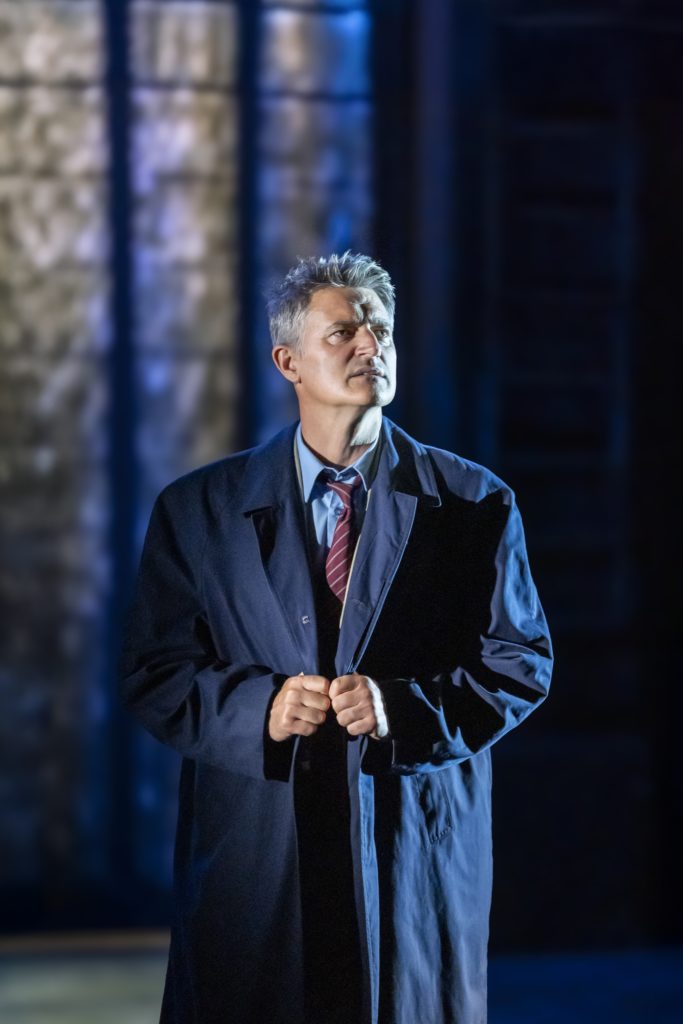
THIS is Re-Morse, a new staging of Alma Cullen’s Inspector Morse: House Of Ghosts, the first Morse stage play.
Taken on a small tour in 2010 and broadcast on BBC Radio 4 in a 90-minute version in March 2017, it returns for a nationwide tour on a grander scale, mounted by Melting Pot and Birmingham Rep, with a cast led by 2008 Strictly champ Tom Chambers as Morse and Tachia Newall – Macbeth in Amy Leach’s Macbeth at Leeds Playhouse in 2022 – as Lewis in the detective double act.
Cullen wrote more than a handful of episodes for the television series that ran from 1987 to 2000, based on Colin Dexter’s books. House Of Ghosts is an original story, set as ever in Oxford, in 1987, although Colin Richmond’s functional set design does not evoke the city of dreaming spires, typified by the Crown pub being represented by two men – Morse and Lewis – leaning on a bar in Alas Smith And Jones mode.
Cullen’s play mirrors both the two-hour span of each TV episode and the familiar structure of short scenes, while adding a theatrical element by rooting the play in a production of Hamlet. Or, rather, two productions, one warming up for a London run at the Oxford Playhouse in 1987; the other, a student production in 1962 with the same director in his gilded youth and Morse forever in the background in a bit-part.
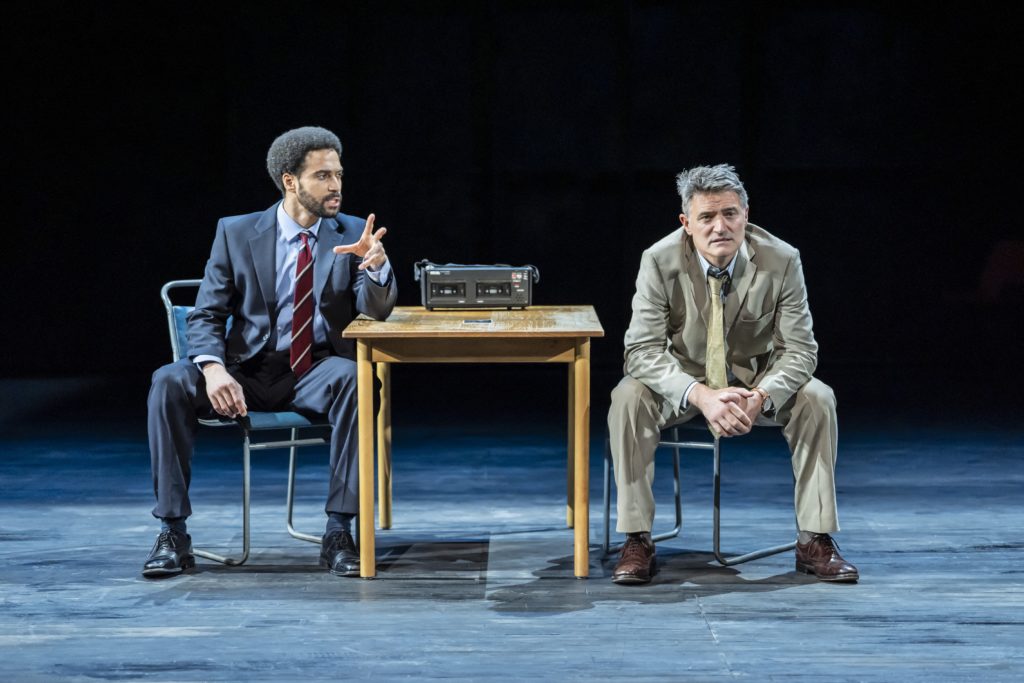
This is the House Of Ghosts, a reference both to figures re-emerging from Morse’s academic past and to the significance of ghosts [Hamlet’s father] in Shakespeare’s tragedy.
Cullen’s play opens with Spin Glancy’s Justin, already highly strung and later prone to putting powders up his nose, putting too much ham into a Hamlet monologue. Enter young actress of her generation Rebecca Downey’s Ophelia (Eliza Teale), who suddenly drops dead, blood spewing from her mouth. This is not Ophelia’s usual death by drowning, but death for real, alas poor Rebecca.
Chambers’ Morse, taking on the John Thaw mantle in the year Thaw first played him, happens to be in the audience, bringing the performance and production run to a halt, much to the ire of Lawrence Baxter (Robert Mountford), the vainglorious, uncompromising director in desperate need of a hit.
Into the web of intrigue Cullen spins not only the reckless, crushing Lawrence from Morse’s student past, but also the now dipso actress Verity (Charlotte Randle) and university historian Ellen (Teresa Banham), one of Morse’s unrequited loves from his salad days.
Re-appearing too is Paul Kincaid (Mountford, part two), once the doyen of Oxford student actors and Baxter’s rival in bed-post conquests, but now answering God’s calling as a Monsignor (who takes Rebecca’s funeral at the outset of the superior Act Two).
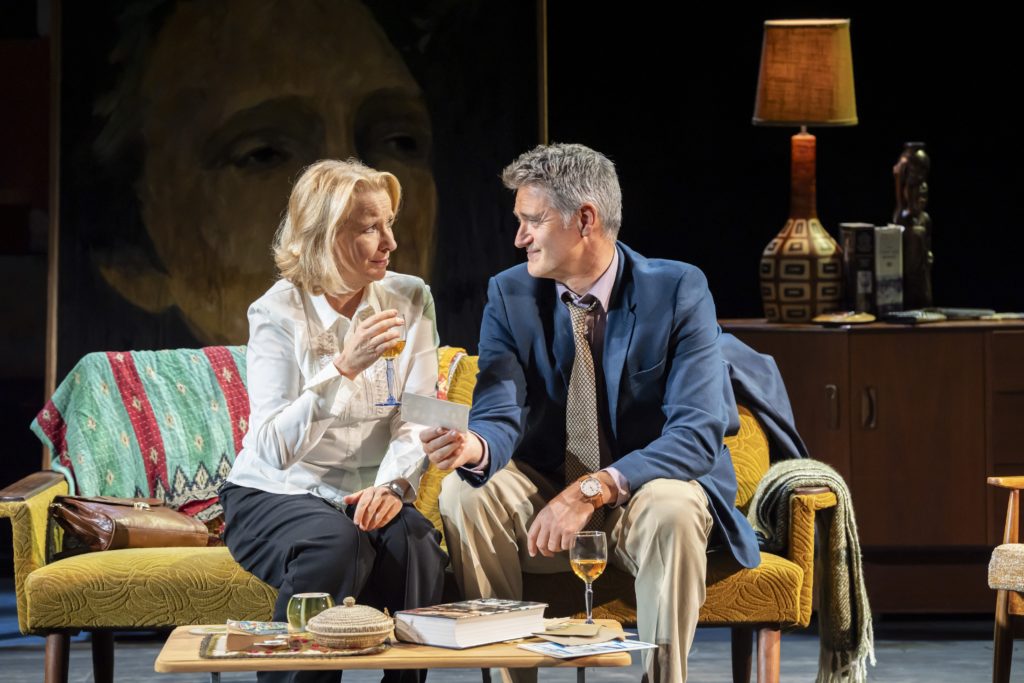
Glancy’s Justin and James Gladdon’s “piece of north eastern rough”, Freddy, the uppity Laertes to his flaky Hamlet, are at odds with each other both on and off stage. Enter the fray Lawrence’s wife Harriet (Olivia Onyehara, from the Stephen Joseph Theatre’s The 39 Steps and Pilot Theatre/Northern Stage’s A Song For Ella Grey), pre-occupied with IVF treatment in London.
The plot thickens, revelations pile up, not least of Baxter’s practice of bedding his leading lady pre-show to bring out the best performance, but House Of Ghosts does not hold a candle to the TV series, and some of the acting under the normally reliable Anthony Banks’s direction is surprisingly histrionic. The sozzled meltdown of Randle’s Verity at the Crown, however, is a comic gem.
Act Two is much more sure-footed, not least in the partnership of Chambers, bringing the morose to loner Morse with a frown worthy of Thaw, and Newall’s matter-of-fact, diligent Sergeant Lewis, craving a night in alone with his wife.
Revisiting an old favourite is not always a good idea, and in truth Inspector Morse: House Of Ghosts induced a feeling or remorse in your reviewer.
Melting Pot and Birmingham Rep present Inspector Morse: House Of Ghosts, Grand Opera House, York, until Saturday, 7.30pm plus 2.30pm Saturday matinee. Box office: atgtickets.com/york

